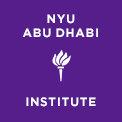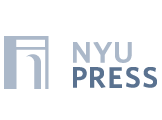
Soccer ball by jarmoluk. CC0 via Pixabay.
In this blog post, PhD student Rhiannon Garth Jones explores the construction of a national identity and projection of power in the United Arab Emirates by comparing Emirati poetry traditions with the UAE’s involvement in elite international sport. She uses the poem “Intelligent Speech and Borders of the Land” by al-Mayidi ibn Zahir and the Manchester City soccer team to argue that both poetry and sport are languages to project identity and power that are grounded in millennia-long traditions.
Imagine a rich person, eager for prestige. They spend their money to attract the best talent to their city. They flaunt their facilities, brandish their wealth, and make grand claims about the future of their project. A contest is declared; fans and commentators flock to see for themselves. The buzz of excitement builds up, a hush of anticipation signals the start, well-rehearsed jibes fly against the opposition, roars greet a successful shot, the crowd basks in the satisfaction of a victory well-fought and bragging rights secured. Legends are created, embellished, and handed down by word of mouth. Time passes and fortunes change, but the locals remember the glory days.
In the twenty-first century, this could easily be the story of a sports team bought by a rich investor. For a millennium or more, however, this narrative could just as easily have described a city or royal court in the Arabic-speaking world, where rulers sought to attract the best poets to bring fame and glamour to their cities.
The court of Emir Sayf al-Dawlah in Aleppo is a perfect example. From 333/945 to 356/967, he made great efforts to encourage poets and scholars to join his court, competing with rival courts across the Islamicate world. His success in attracting al-Mutanabbi, considered one of the greatest Arabic poets of all time, made the court at Aleppo more appealing to other promising poets. Poetry contests were held frequently at the court and ambitious poets would use their connections and travel to the emir’s court in the hopes of receiving a small stipend. Sayf al-Dawlah was a leading military commander and political figure of his time – and he also understood the role of poetry, both in immortalizing his accomplishments in the most flattering terms and, crucially, as an accomplishment in itself.
 This association of prestige and power with poetry remains. In the introduction to his translation of al-Mayidi ibn Zahir’s Love, Death, Fame: Poetry and Lore from the Emirati Oral Tradition, Marcel Kurpershoek notes the many significances of this seventeenth-century poet to the modern-day United Arab Emirates. He describes Ibn Zahir as “inextricably linked with the UAE” and its cultural origins, which reach back for centuries before the formation of the state in 1971. As Ibn Zahir has become increasingly important to regional identity and in the absence of much historical record, legends around him as a proto-Emirati have grown, receiving edits and embellishments until they were first recorded in written form in the late 1990s.
This association of prestige and power with poetry remains. In the introduction to his translation of al-Mayidi ibn Zahir’s Love, Death, Fame: Poetry and Lore from the Emirati Oral Tradition, Marcel Kurpershoek notes the many significances of this seventeenth-century poet to the modern-day United Arab Emirates. He describes Ibn Zahir as “inextricably linked with the UAE” and its cultural origins, which reach back for centuries before the formation of the state in 1971. As Ibn Zahir has become increasingly important to regional identity and in the absence of much historical record, legends around him as a proto-Emirati have grown, receiving edits and embellishments until they were first recorded in written form in the late 1990s.
In the poem “Intelligent Speech and Borders of the Land,” Ibn Zahir prays for blessings of rain to reverse his fortunes in love, extensively describing territories that map onto the modern day physical borders:
Clouds drenched lands from east to west
in an embrace of all terrain that borders Oman:
From the empty deserts in the south to the north,
from al-Zafrah to the Gulf’s littoral at Dihan.
The poet goes on, highlighting “Liwa’s dunes and al-Gharif’s plains,” “al-Hwemi’s sands and al-Ghadir,” and “al-Saj’ah and al-‘Ushush’s marches.” The UAE may be a modern state, but Ibn Zahir’s poetry suggests that its physical borders and oral poetry traditions are centuries old. In addition to expressing the literal borders of the modern state, Ibn Zahir’s proficiency in Nabati poetry expresses a cultural border with neighbouring Oman, where the vernacular language and elegant simplicity of Nabati poetry are much less popular than elsewhere in the Arabian peninsula.

Etihad Stadium, Manchester City Football Club by Ank Kumar. CC0 4.0 via Wikimedia Commons.
In many parts of the world, however, the UAE is not synonymous with poetry but with sport. The country hosts a Formula 1 Grand Prix, sponsors a Tour de France team, and – perhaps most famously – owns Manchester City Football Club through the Abu Dhabi United Group. This involvement in major sports is another way for the UAE to project power and identity, both regionally (for example, Bahrain, Saudi Arabia, and Qatar all have similar sporting investments) and globally.
Modern sport has always been enmeshed with imperial ideas of identity and power. When Pierre de Coubertin founded the International Olympic Committee in 1894, he invoked his proposed games as a revival of the religious and sporting festivals of ancient Greece, traditionally dated to 776 BC and held in some form until 393 CE. The modern games were rooted in the English public-school ethos of sport as essential to moral development, then being exported around the globe as part of the British Empire, and in Coubertin’s belief that Europe had inherited Hellenism.
Since then, sport has exploded financially from an amateur leisure pursuit to one of the most valuable and high-profile industries in the world. Moral values such as fair play and respect are still frequently trumpeted, but the financial value of TV broadcast deals and sponsorship inevitably speak louder. That combination of cachet, heritage, and wealth makes elite sport a glamorous and prestigious affair – and one of the most significant languages of power in the modern world.

Kalvin Phillips, Julian Alvarez, Erling Haaland and Stefan Ortega kits in the Manchester City dressing room in July 2022 by Christian David. CC0 4.0 via Wikimedia Commons
Manchester City is undeniably a more glamorous and prestigious team since the takeover by the Abu Dhabi United Group in 2008. Since 2016, the team has been astonishingly and unprecedentedly successful domestically. Coach Josep “Pep” Guardiola, widely considered one of the best in the world, has helped attract star players to Manchester City, much as the presence of al-Mutanabbi once attracted other premier poets to Sayf ad-Dawlah’s court. Perhaps more important than the trophies are the style of football that the team plays, which generally attracts glowing praise for its aesthetic elegance, even when the funding is questioned or concerns about “sportswashing” are raised.
Long-standing legacies
This rule was handed down from our ancestors,
Memorized in verse, generation upon generation
Here, as part of the introduction to the poem, Ibn Zahir gives advice on how to treat friends. Later in the poem he reflects on poetry and its role in society, aptly capturing how the use of poetry operates within a millennia-long tradition of oral and written Arabic poetry, from the pre-Islamic epics and rap-battles, through the glamorous local centers of poetry in the Abbasid period, to fourteenth-century Nabati poetry. Geographically, the use of Arabic poetry to project power stretched as far west as al-Andulus, east to Transoxiana, and south through the Arabian peninsula. The context of that tradition and heritage, the wider regional use of poetry as a language of power, and modern-day geopolitical relationships are all important to understanding the prestige, glamour, and impact of Ibn Zahir’s poetry in the UAE.

Manchester Derby at Wembley Stadium in the semi-finals of the 2011 FA Cup. CC0 3.0 via Wikimedia Commons
The lines above also perfectly capture the spirit of many fan rivalries. Derby games, where two rival teams from the same city or region play against one another, function like poetry battles, a contest where superiority or inferiority is confirmed over the course of decades or more (as Ibn Zahir said, “Satisfaction restores man’s strength and pride”). In the case of teams like UAE-owned Manchester City, however, the long-standing “local” rivalry is no longer confined to the traditional fan derby within the city – just like in Sayf al-Dawlah’s court, the rivalries operate on a much wider geographical scale. Manchester City compete in the UEFA Champions League, where they are joined by Paris Saint-Germain (owned by Qatar Sports Investments since 2011). This occasional fixture is now referred to as the “Gulf Derby.” A bid by Qatar’s Sheikh Jassim Bin Hamad Al Thani for Manchester City’s traditional local rival, Manchester United, would bring that Gulf Derby right back to the city of Manchester itself.
Meanwhile, since 2014, the Abu Dhabi Authority for Culture and Heritage has commissioned the incredibly popular TV talent show Million’s Poet, to keep Nabati poetry alive for a new generation and promote new superstar poets who continue Ibn Zahir’s legacy into the modern day. Back in Manchester, the evolution of Manchester City, the leadership of Guardiola, and the success on the pitch were captured in a glossy TV documentary in 2018 that has added to the mythmaking of fans – another modern twist on legend creation.
Both poetry and sport are grounded in millennia-long traditions as a way to identify individuals, communities, and political entities. It is no surprise to see the UAE engaging with both to define itself as a very modern nation-state with a very long heritage. Nabati poetry was once used to announce the renewal or suspension of diplomatic relations; now diplomatic relations can be imperilled by the ownership of football teams. As Ibn Zahir said in the poem “Death and Revival,” “perhaps once we are gone, we won’t be forgotten.” Time passes and fortunes change, but the ways that people seek to keep collective memories and identities alive endure.
—
Rhiannon Garth Jones is a PhD Fellow at the Center for Urban Network Evolutions at Aarhus University, working on the early Abbasid visual language of power in imperial urban centers. She has also worked as a freelance sports journalist and is interested in the intersection of empire, history, and religion, as well as their reception and manifestations in the modern day. She can be found at @rhigarthjones.

